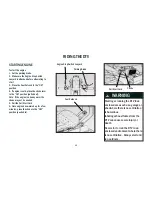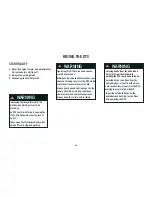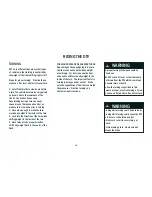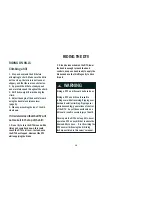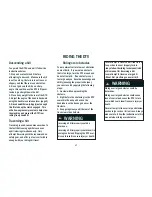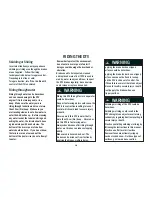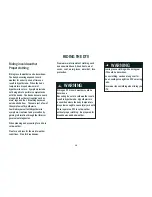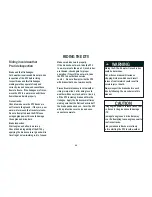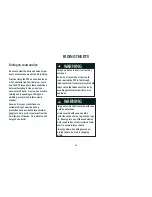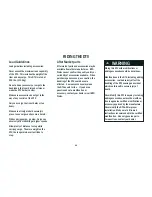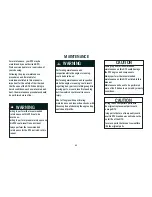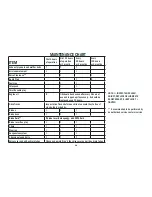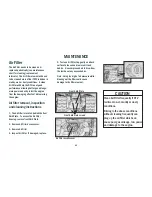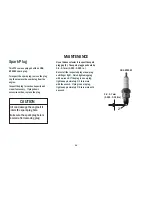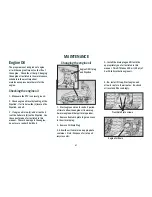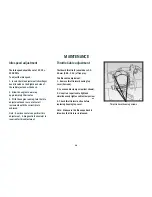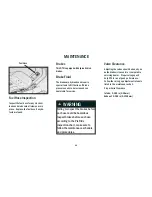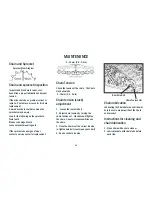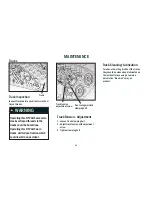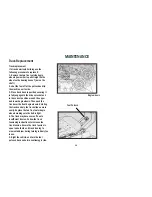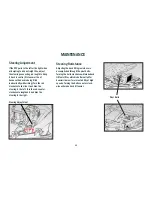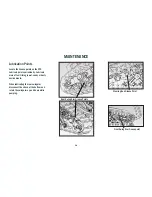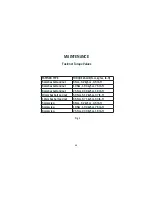
Brake and throttle linkages:
Cold weather requires additional pre-ride
inspection of the DTV before riding.
Inspect brake and throttle linkages
making sure they operate freely and
correctly. Ice and snow can cause these
items to freeze. If the linkages are frozen,
move the DTV to a warm area until these
items thaw and work properly.
Frozen tracks:
Check to make sure the DTV tracks are
not frozen to the ground, if they are, pour
warm water around the tracks to release.
Do not attempt to break the DTV loose
using engine power, this could damage
the engine and drive train.
Brake inspection:
Start engine and allow to warm up.
Check the braking ability of the DTV by
applying the brakes on level ground while
traveling at a slow (walking rate) of speed.
Preventive maintenance in cold weather
riding is important, after riding in cold
weather with snow, slush, water or ice, dry
off the DTV including brake and throttle
linkages. Apply the brakes several times
making sure that the friction has dried off
the brake pads and shoes. Cover the DTV
with a protective cover so ice and snow
cannot accumulate .
Riding the DTV with wet or frozen brakes
could be hazardous.
Wet or frozen brakes will increase
stopping distance which could result
in loss of control which could result in
severe injury or death.
Always inspect the brakes before each
ride by following the procedures in this
manual.
!
WARNING
Using engine power to release tracks that
are frozen to the ground could damage
DTV.
Damage to engine and drive train may
occur if attempting to use engine power to
free frozen tracks.
Always make sure tracks move freely
before starting the DTV in cold weather.
CAUTION
Riding in cold weather
Pre-ride inspection
RIDING THE DTV
Make sure brakes work properly.
If the brakes do not work, take the DTV
to a warm area to thaw out. Once brakes
are thawed, check again for proper
operation, if they still do not work, take
the DTV to a authorized service
center. Do not attempt to ride the DTV
with brakes that do not work correctly.
20








